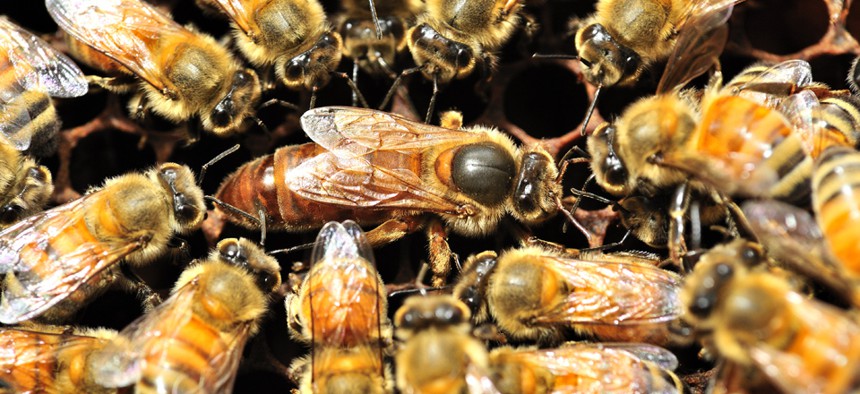
JSseng/Shutterstock.com
Women as Mentors: Squashing the Queen Bee Myth
Many want to share their knowledge but are rarely asked.
Do you work for a “queen bee?” This label, coined in the 1970s by researchers at the University of Michigan, describes the phenomenon of a high-ranking female working in a male-dominated industry who does everything she can to thwart the rise of female colleagues.
Is the queen bee a myth, or does she really exist?
Stories are legion of the lengths ambitious women will go to ascend to power in their organizations, and how they will do anything to ensure that other talented women don’t get their due (think Meryl Streep in The Devil Wears Prada
![]()
.)
Supposedly this exists in real life too. I once heard a prominent male business executive in my city (one who proudly touted his company’s dedication to inclusiveness in TV ads for his financial services firm) claim at a diversity conference that often the reason women at his company didn’t get ahead is because they were too busy competing with one another. This made my blood boil; upon hearing this I thought, if that isn’t blaming the victim, I don’t know what is!
In over two decades of corporate life, I’ve reported to 13 supervisors, nine of whom were women. Not a single one of them ever did anything to hinder my career. In fact, nearly all of them actively helped me further my professional growth.
After hearing the executive talk about what was in essence was a perceived “queen bee” environment at his company, I counted my positive career experiences as an anomaly.
Still, it nagged at me. No doubt, there are queen bees out there, but how come I’ve never seen one?
The other day, I read about a recent research report published by Develop Dimensions International titled, “Women as Mentors: Does She or Doesn’t She? A Global Study of Businesswomen and Mentoring.” It seems that my experiences are not as rare as I thought. Many women in senior leadership roles are willing to mentor, but they’re rarely asked.
According to the research, 20 percent of women in senior leadership roles have never been asked to be a mentor, and nearly 50 percent have been asked only a few times. “Women want to share their experience and provide career guidance, but other women are not seeking them out” the researchers write, saying that 71 percent of the survey respondents say they always accept mentoring requests.
So sure, there are some queen bees out there, but probably not as many as you think. If you are looking to advance in your career, one simple step is to simply ask a professional woman you admire to mentor you. Squash that image of the ruthless, buzzing insect. Instead, invest in your career. Reach out and trust that you won’t get stung.
Jennifer Miller is a writer and leadership development consultant. This article originally appeared on her blog The People Equation.
(Image via JSseng/Shutterstock.com)
NEXT STORY: Who is Sloan Gibson, the New Acting Head of VA?






